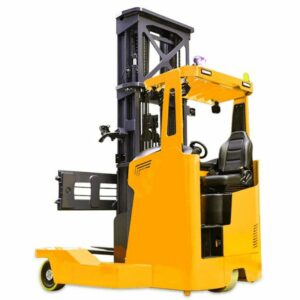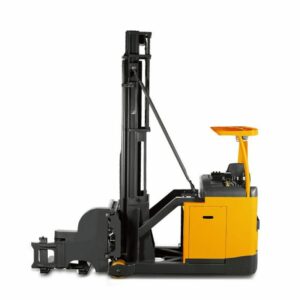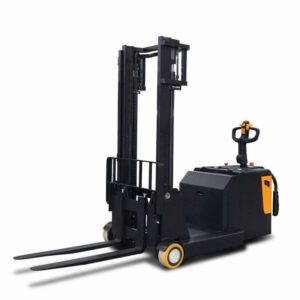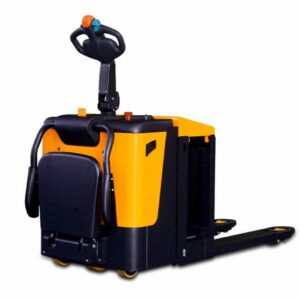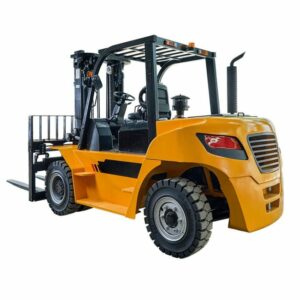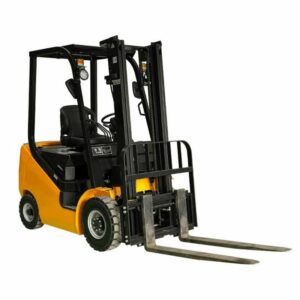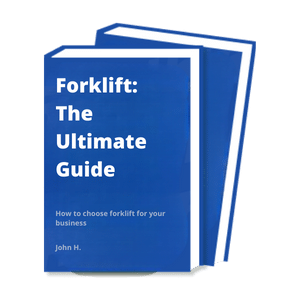PRODUCT FEATURES
Stacker Forklift Manufacturer To Rocket Your Business
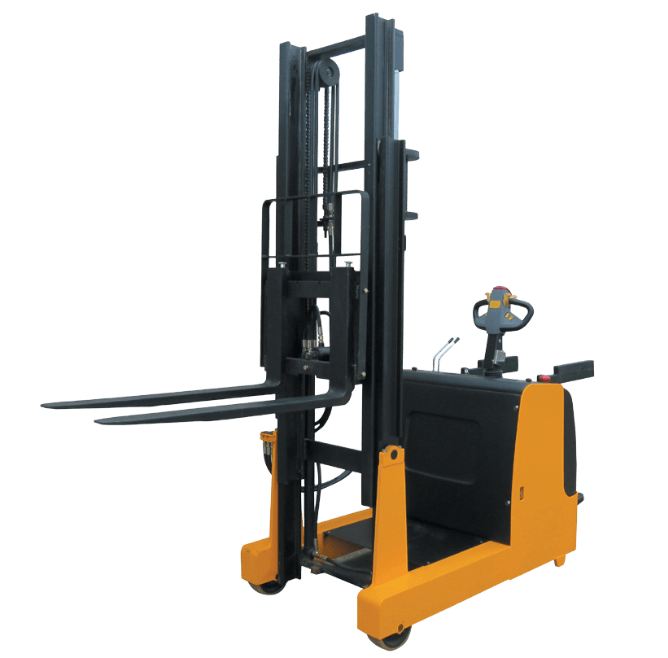
PRODUCTS
Proud to Offer a Wide Variety of Forklifts
If you are looking for something specific that isn’t listed on our website yet, just contact us today.

ABOUT US
Who is uforklift.com
uforklift.com have seen that today there are also many forklift companies in China & internationally. However, their solutions were still stuck a few years ago.
In fact, we have been upgraded in recent years, and uforklift.com hope our smart and flexible solutions can inject fresh blood into this market.
PARTNER
Who Trust Us





BUYER’S GUIDE
The Ultimate Guide to Stacker Forklifts: Everything You Need To Know
If you’re in the market for a new stacker forklift, you may be feeling a little overwhelmed. With all of the different brands and models available, how do you know which one is right for your clients?
In this guide, we’ll walk you through everything you need to know about stacker forklifts, including how they work and the different features available. We’ll also provide tips on choosing the right model for your business needs and budget.
Let’s get started!
Table of contents
1. Stacker Forklifts Brief Introduction
A stacker forklift, also known as a walkie stacker forklift or walkie straddle, is a type of lift truck that is typically used in warehouses and distribution centers. It is also called a walk behind pallet for it is designed to be operated by a single operator, who walks behind the stacker while it is in use.
They are designed to stack pallets or other types of load onto racks. Stacker forklifts usually have a mast that can be raised and lowered, as well as forks that can be extended or retracted.
These walkie stackers can lift the load a few inches to several feet off the ground, making it easy when lifting pallets. It can hold up to two pallets at a time and has a weight capacity of up to 4000 pounds, which makes it very efficient for warehouse work.
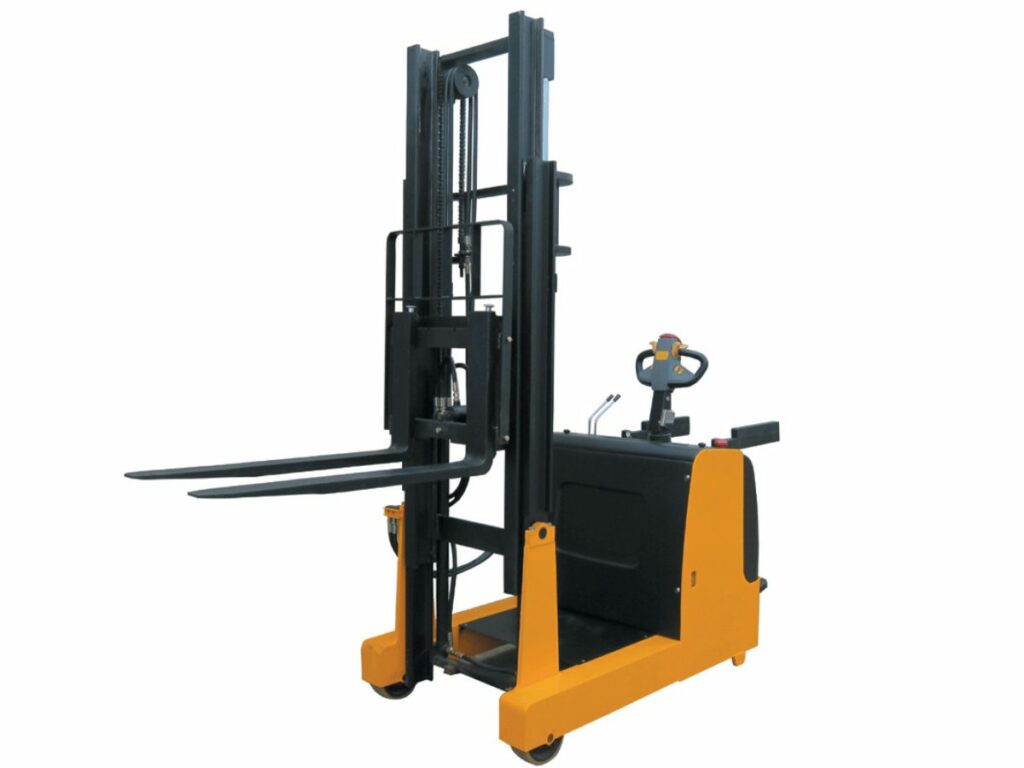
2. The Different Types of Stacker Forklifts Available on The Market
When it comes to pallet stackers, there are three main types that you’ll find on the market: electric stackers, manual stackers, and gas-powered stackers. Each type has its own set of benefits and drawbacks that you’ll need to consider before making a purchase.
Electric Stackers
Electric stackers are the most popular type of stacker forklift on the market. They’re incredibly versatile and can be used in a variety of settings, from warehouses to manufacturing plants. This forklift stacker electric is also very easy to operate, making them a good choice for businesses that don’t have a lot of experience with forklifts.
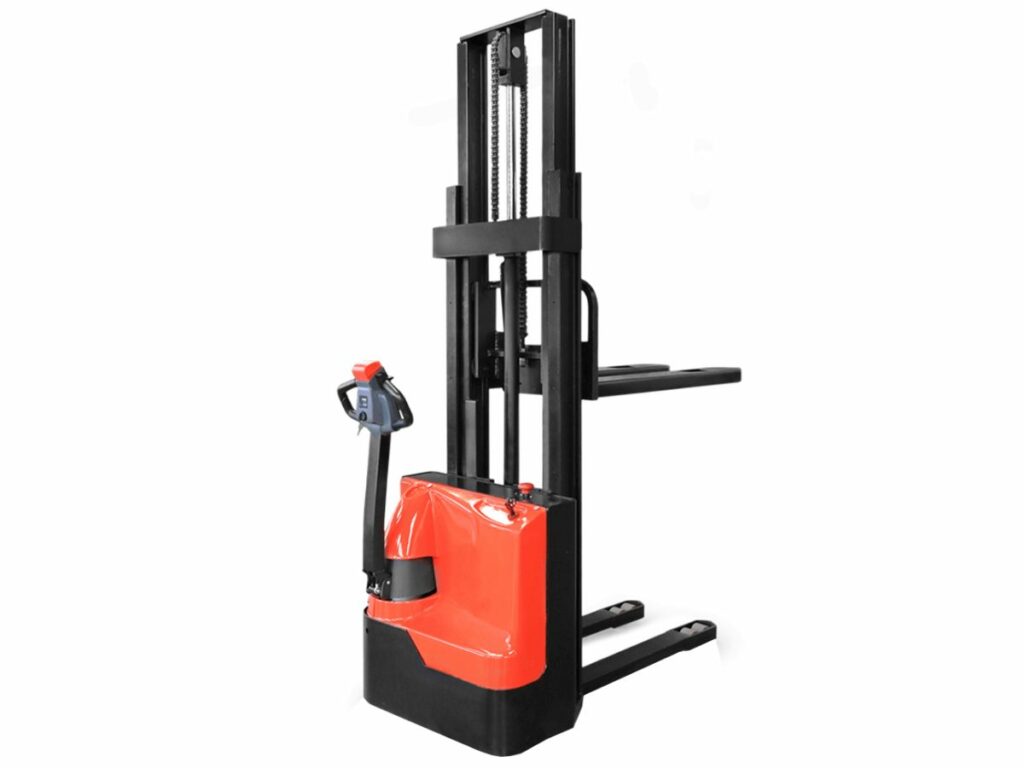
Manual Stackers
Manual stackers are another popular option, especially for businesses that are on a tight budget and for short distances areas. A manual pallet jack stacker is operated using a hand pump, which means they don’t require any electricity to run. However, they can be difficult to operate and are not as versatile as electric stackers. Its lift speed is also relatively slow, which can be a problem if you’re working in a fast-paced environment.
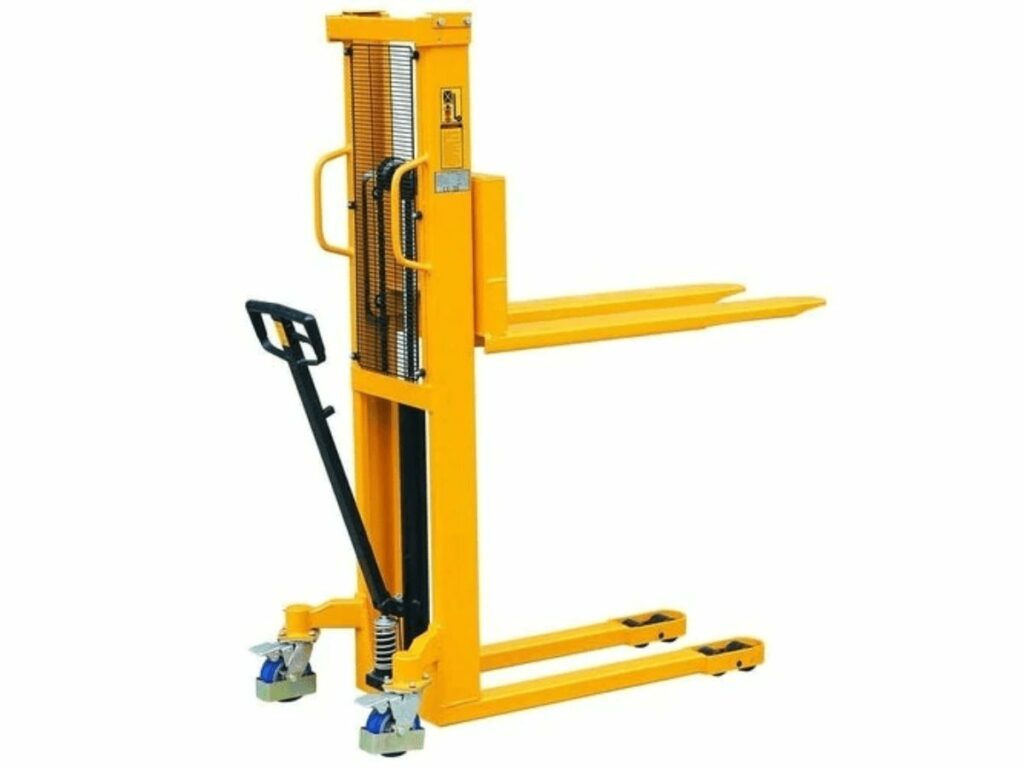
Gas-Powered Stackers
Gas-powered stackers are the most powerful type of stacker forklift available. They’re typically used in industrial settings where they need to lift heavy loads. Gas-powered stackers are also the most expensive type of pallet stacker, so they’re not a good choice for businesses that are on a tight budget.
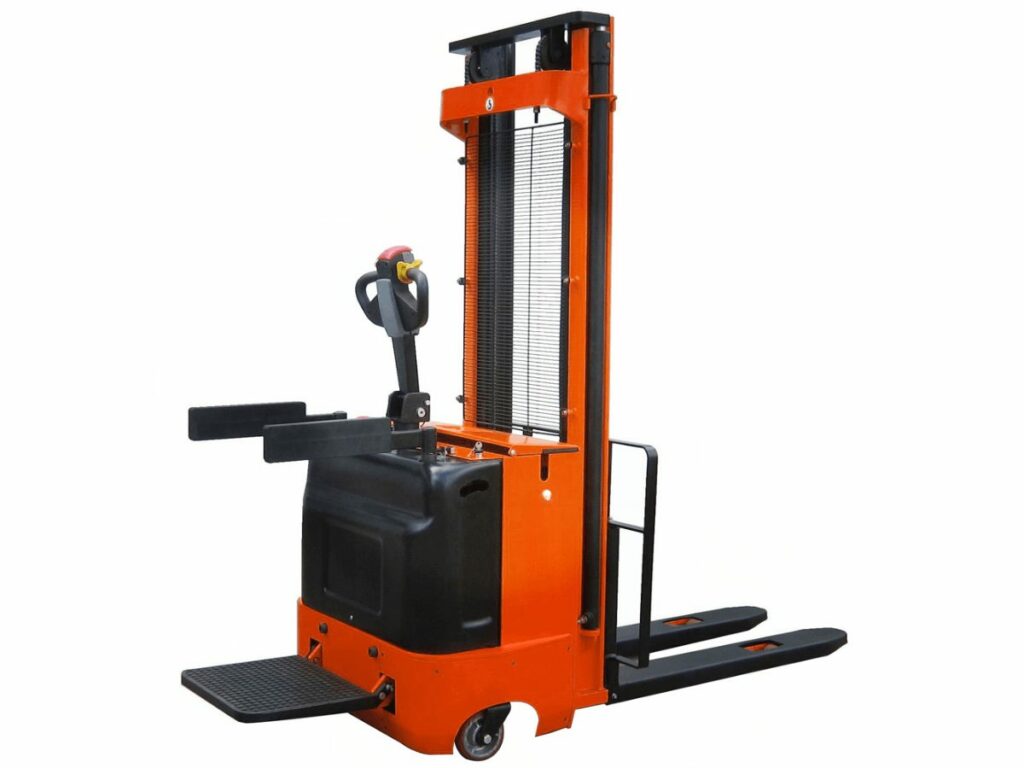
Consider the type of business your clients have, the budget they’re working with, and the specific needs of their operation before making a decision. With so many options on the market, there’s sure to be a forklift pallet stacker that’s perfect for your client’s business.
3. Important Features to Look for When Purchasing a Stacker Forklift for Your Business
When purchasing a stacker forklift for your business, there are several important features to look for. These include:
Stack Height
First, consider the stack height. This is the maximum height that the stacker can lift and stack materials. Make sure to choose a high stacker forklift that can reach the heights you need it to.
Load Capacity
One of the most important things to consider when choosing a stacker forklift is its capacity. Make sure to choose a stacker forklift that can handle the weight of the loads you’ll be lifting.
Turning Radius
Consider the stacker’s turning radius. This is the distance that the stacker truck needs to turn to stack materials safely.
Travel Speed
Consider the stacker’s travel speed. This is the speed at which the stacker can move from one location to another.
Warranty
Finally, consider the stacker’s warranty. This will protect your investment in case of any problems.
When purchasing a stacker forklift, keep these important features in mind to make sure you choose the right one for your business. With the right stacker forklift, you’ll be able to efficiently and safely stack materials.
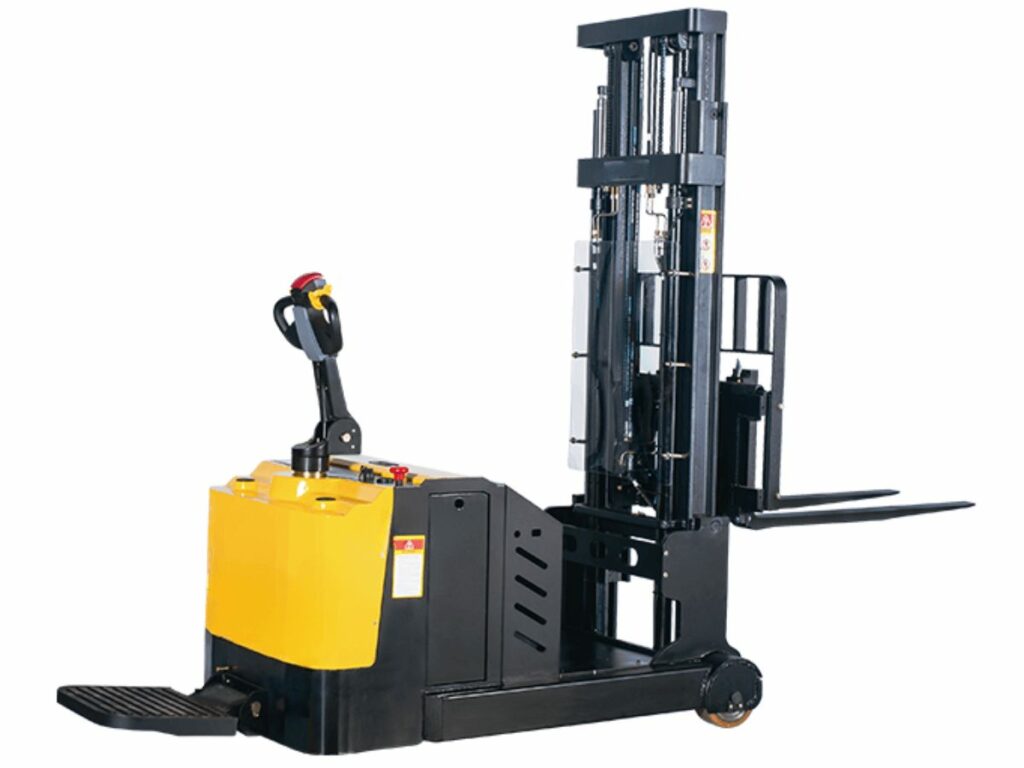
4. How to Operate a Stacker Forklift Safely and Efficiently
Now that you know the basics of stacker forklifts, it’s time to learn how to operate them safely and efficiently. Here is a step by step guide on how to do just that:
Step#1 Pre-operational Checks
Before operating a stacker forklift, it is important to do some pre-operational checks. This includes checking the tires, brakes, and steering. Additionally, the operator should also check the forks and load for any damage.
Step#2 Starting the Forklift
Once all of the pre-operational checks are complete, the operator can start the forklift. To do this, simply turn the key in the ignition and press the start button.
Step#3 Driving the Forklift
Now that the stacker forklift is started, the operator can begin driving it. When driving, be sure to go slowly and avoid making any sudden movements. Additionally, the operator should always keep their eyes on the road and be aware of the surroundings.
Step#4 Loading and Unloading
When loading or unloading a pallet walkie stacker, it is important to use caution. Be sure to center the load on the forks and secure it with straps or chains. Additionally, do not stack anything higher than the recommended stack height.
Step#5 Shutting Down the Forklift
When the operators are finished using the stacker forklift, the operator will need to shut it down. To do this, simply turn off the key in the ignition and engage the parking brake. Once the walkie pallet stacker is turned off, be sure to lower the forks to the ground.
5. Overall Cost of A Stacker Forklift
The overall cost of a stacker forklift for sale includes the price of the machine itself, plus any shipping and handling charges, and any taxes that may be applicable. When budgeting for a stacker forklift, it’s important to factor in these additional costs so you can get an accurate estimate of the total expense.
Generally, stacker trucks for sale start around USD 15,000 and can go up to USD 30,000 or more. Of course, the final cost will depend on a variety of factors, including the brand, the features, and the retailer you purchase from.
6. How Can You Find the Best Deal on A Stacker Forklift
The answer to this question is quite simple. You just have to be very careful and do your research properly before making any decisions. There are a lot of stacker reach trucks out there and not all of them are created equal. You need to find one that is durable and will last you a long time.
Step#1 Determine Your Needs
First and foremost, you need to know what type of stacker forklift would be best suited for your needs. There are many different types available on the market today and each one has its own set of advantages and disadvantages.
Step#2 Compare the Different Models
Once you know what type of stacker forklift you need, the next step is to compare the different available models. There are a lot of factors that you need to consider when making this decision such as price, features, and performance.
Step#3 Choose the Right Dealer
This is very important because you need to make sure that you are dealing with a reputable company. There are a lot of scams out there so you need to be very careful.
Step#4 Compare the Prices
Now that you know what you need and you have found a few reputable dealers, it’s time to compare the prices to make sure you find the best deal on a stacker forklift. This is very important because you don’t want to overspend on your pallet stacker forklift.
7. Safety Precautions You Need to Take when Using a Stacker Forklift in Your Workplace
When using a stacker pallet truck in your workplace, there are certain safety precautions you need to take. Here are seven of them:
| No. | Steps |
| 1 | Wear the Proper Safety Gear |
| 2 | Inspect the Equipment Before Use |
| 3 | Operate in a Well-Ventilated Area |
| 4 | Keep Your Hands and Feet Away from the Moving Parts |
| 5 | Don’t Overload the Equipment |
| 6 | Use Caution When Driving |
| 7 | Never Leave the Forklift Unattended |
| 8 | Follow the Manufacturer’s Instructions |
Wear the Proper Safety Gear
Wear the proper clothing and personal protective equipment. This includes closed-toed shoes, long pants, and a shirt with sleeves. You should also wear gloves, goggles, and a dust mask to protect yourself from flying debris.
Inspect the Equipment Before Use
Inspect the pallet stacker truck before using it. Make sure the brakes are in good working order and that the tires are properly inflated. Check the hydraulic fluid level and make sure there are no leaks.
Operate in a Well-Ventilated Area
Operate the stacker forklift in a well-ventilated area. This will help to prevent fumes from building up and making you dizzy or nauseous.
Keep Your Hands and Feet Away from the Moving Parts
Keep your hands and feet away from the moving parts of the stacker forklift. This includes the wheels, tires, and chains.
Don’t Overload the Equipment
Do not overload the stacker forklift. Make sure the load is evenly balanced and within the stated weight limit for the forklift.
Use Caution When Driving
Use caution when driving on ramps or uneven surfaces. Slow down and be prepared to stop if necessary.
Never Leave the Forklift Unattended
Never leave the stacker forklift unattended while it is running. Turn it off and set the parking brake before getting out.
Follow the Manufacturer’s Instructions
Be sure to follow the manufacturer’s instructions when operating the stacker forklift. This will help to prevent accidents and injuries.
By following these safety precautions, the operators can help to prevent accidents and injuries when using a stacker forklift in your client’s workplace.
8. 5 Maintenance Tips for Stacker Forklifts
As with any type of machinery, it is important to keep stacker forklifts well-maintained to ensure their longevity and prevent accidents. Here are eight maintenance tips for stacker forklifts:
#1 Check the Fluids
This includes the engine oil, hydraulic fluid, and coolant. Checking these fluids regularly will help to ensure that the stacker forklift is running smoothly and prevent any major issues from arising.
#2 Check the Tires
It is also important to check the stacker forklift’s tires regularly. Make sure that the tires are inflated to the proper pressure and that there is no damage to the tires. If there is any damage, it is important to have it repaired or replaced as soon as possible.
#3 Check the Brakes
Checking the stacker forklift’s brakes regularly is also crucial. Make sure that the brakes are in good working order and that there is no fluid leakage.
#4 Inspect Chains and Sprockets
It is also important to inspect the stacker forklift’s chains and sprockets regularly. Make sure that they are not worn or damaged in any way. If they are, it is important to have them repaired or replaced as soon as possible.
#5 Keep the Battery Charged
Finally, it is important to keep the stacker forklift’s battery charged. A dead battery can prevent the stacker forklift from starting and cause major problems.
By following these maintenance tips, your clients can help to ensure that their stacker forklift will last for many years to come.
9. Common Issues with Stacker Forklifts and How to Troubleshoot Them
Just like any other type of forklift, stacker forklifts can experience a variety of issues. Here are some of the most common problems stacker forklifts face and how to troubleshoot them:
Leaking Hydraulic Fluid
If the operator notices hydraulic fluid leaking from the stacker forklift, it’s important to take action right away. Hydraulic fluid leaks can cause a variety of problems, including loss of power and decreased lifting capacity.
To troubleshoot a hydraulic fluid leak, first, check the hoses and fittings for any damage or leaks. If they can’t find the source of the leak, take the forklift to a certified repair shop for further diagnosis.
Low Tire Pressure
If the stacker forklift’s tires are low on pressure, it can affect the lift’s performance. Low tire pressure can cause the stacker to shake or vibrate, making it difficult to control. To troubleshoot low tire pressure, simply check the tires with a pressure gauge and inflate them to the recommended PSI.
Worn Out Brakes
Brakes are an important safety feature on any forklift, so it’s crucial to keep them in good working order. If the stacker forklift’s brakes are worn out, they may not be able to stop the lift properly. To troubleshoot worn-out brakes, inspect the brake pads for wear and tear. If they’re excessively worn, immediately replace them.
Loss of Power
If the stacker forklift suddenly loses power, it could be due to a variety of issues. To troubleshoot a loss of power, first, check the battery to see if it needs to be replaced.
If the battery is fine, then the problem may be with the fuel system. Check the fuel lines and filter for any blockages or leaks. If you can’t find the source of the problem, take the stacker to a certified repair shop.
These are just a few of the most common problems stacker forklifts face. By troubleshooting these issues, your clients can keep their stacker running smoothly and avoid any costly repairs.
10. Conclusion
Ultimately, stacker forklifts are an excellent choice for businesses that need to move large quantities of goods around a warehouse or other storage facility. They are highly maneuverable, efficient, and relatively easy to operate. If you’re in the market for a new forklift, be sure to consider a stacker model.
If you have any questions about stacker forklifts, or you’re not sure which type of forklift is right for your business, contact us today at Uforklift. We will be very happy to assist you!
